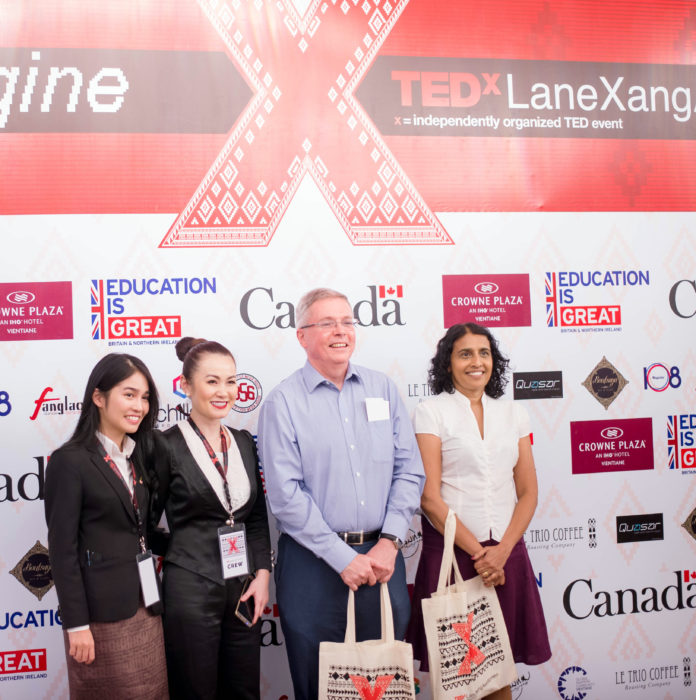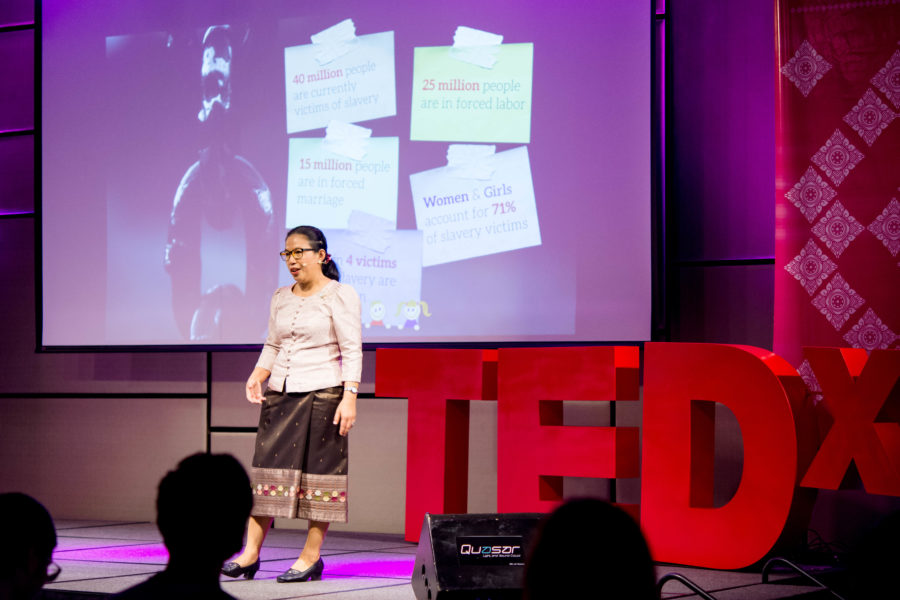21st December 2017 Vientiane, Laos
Holding Up The Sky
During China’s Cultural Revolution, Mao Zedong famously proclaimed that women “hold up half the sky.” It was an unequivocal assertion of women’s equal rights and responsibilities in society. Half a century on, however, achieving gender parity unfortunately remains unfinished business across the world.
Still, the dramatic events of 2017 suggest the empowerment agenda is gaining international momentum. Here in Laos observers believe the position of women is improving. They, like men, are benefiting from Laos’ annual 7% GDP growth rates and rising per capita incomes (around $2500 per annum, a fourfold increase since 2005).
Laos also has progressive legislation (with an equality bill to follow in 2018); the Lao Women’s Union and other groups actively champion gender rights; and, in a recent speech, Deputy Prime Minister Sonexay Siphandone reaffirmed the government’s commitment to eradicating violence against women and girls.
Big challenges remain, though. An obvious one is enforcing women’s rights in a country where judicial capacity is limited and traditional attitudes persist. Moreover, economic growth, though buoyant, has been too narrowly based to reduce social inequalities, especially in rural areas, such as stubbornly high maternal and child mortality and high female drop-out rates between primary and secondary school.
These concerns were aired in a discussion this month hosted by Prime Minister Thongloun Sisoulith to mark the end of the annual dialogue between government ministries and development partners. Donors praised the PM and his colleagues for integrating the UN Sustainable Development Goals – including SDG 5 on promoting women and girls – into Laos’ current five year plan. But they also pressed for faster progress in many areas.
As I listened to the exchanges, I noticed that the ministers and vice ministers sitting on one side of the table were mainly men. What a pity, I mused, not to see more Lao women in top government positions. But then I winced when I glanced at the ambassadors and heads of international agencies lining my side of the table. They were – like me – also mainly men. Addressing this imbalance clearly remains a cross-cutting agenda!
Not that having more senior female politicians and officials should be the only source of potential role models, welcome though this would be. Outside of government, I was given a powerful glimpse into the quality of Laos’ emerging women leaders when I attended a TEDX event in Vientiane last month.

Among the impressive local volunteers from Global Shapers – a world-wide youth network committed to “driving dialogue, action and change” – who organised the talks was Mary Bounthalath, a Chevening Scholar. Mary will be one of 50 Shapers invited to attend the Davos World Economic Forum in January.
The five speakers, all women, represented business, the creative arts and the professions. Reflecting the TED format, the short talks, covering personal achievements and aspirations, were designed to be inspirational – and they were! The presenters offered fascinating but quite different perspectives. What really struck me, though, was what they had in common.
All displayed an infectious passion for what they were striving to do and an admirable willingness to take calculated risks, including financial. Manothip Sirapaphanh, for example, explained why she gave up a well-paid career – to the disapproval of friends and family – to pursue her dream of starting her business, Naree Handbags, while Chantaravady Choulamany, one of only two trained psychiatrists in Laos, described her life mission to improve the lives of those affected by mental illness.
All were motivated, too, by a deep love of their country and a determination to make a difference. Mattie Do, a diaspora returnee, recounted how she became a film-maker to help Laos project its distinctive creative identity. As co-founder of “Ock Pob Tok” (East Meets West), Veomanee Douangdala outlined her successful struggle to create a company dedicated to preserving the country’s diverse textile traditions. Xoiukiet Panyanouvong, a campaigner against human trafficking, invited us to share her fury and activism against those exploiting the most vulnerable in society for self-enrichment.

Above all, the speakers recognised the importance of telling their own stories to inspire others. As the Pakistani educational campaigner, Malala Yusufzai, has put it: “I raise up my voice not so I can shout but so that those without a voice can be heard”. I am proud the Embassy was a sponsor for the occasion but conscious that there is so much more we and others need to do to support women’s empowerment.
The talks also reminded me of a much bigger truth, that around the world it is often women who work more; study harder; and, when opportunities arise, make the best use of them for the wider benefit of society. Years ago, on a visit to Bangladesh, I saw how the Grameen Bank, a micro-finance institution, enabled mainly women borrowers to start businesses and thus begin to transform the fortunes of the rural poor. I have seen many other examples since.
So, to my mind, Mao was wrong. Women hold up more than half the sky. There are, of course, different views as to why this should be the case. But perhaps I will leave the last word – fittingly – to Britain’s redoubtable first woman Prime Minister, Margaret Thatcher, who once commented that “If you want something said, ask a man, if you want something done, ask a woman”. Don’t believe it? Just ask my wife.
I love your blog. Still would love to come to Laos for a visit.
Your cousin,
Jo Hughes